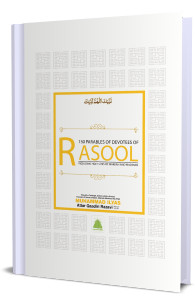What is right after all?
Reincarnation or transmigration – from an Islamic perspective (Part 3)
Some questions and answers regarding reincarnation
Mufti Muhammad Qasim Attari
Claim: An elderly woman had experienced back pain for 17 years. Despite undergoing various treatments, her pain did not go away. She entered a state of hypnosis and realised that she was a man from the Roman Empire who lived in Jerusalem.
Response: What a peculiar claim! One is left to wonder what the poor soul may have experienced in transitioning from being a female to male or vice versa; perhaps it got caught somewhere in between. What happened to the feminine or masculine thoughts and experiences of the soul in the ‘previous life’? She retained her language and pain from her ‘previous life’, but did she just happen to lose her gender on the way? All these matters remain unknown, and some doctor is still in search of the masculinity that went missing.
Furthermore, if someone who was a girl in the so-called previous life is now a boy or vice versa, then a strange scenario is created. This is particularly so because the gender of the people in concern seems to have changed, but their thoughts and language have not. What is the explanation for this?
Claim: According to expert psychologists, most of our illnesses and worries are connected to our previous life. However, once we recognise the pain from our previous life, then it ceases to exist.
Response: The claim that recognising our pain results in it ceasing to exist is astonishing. Such a claim goes against life’s countless experiences and observations. We recognise thousands of problems in life, and yet recognising them does not cause our pain to cease. For example, if someone who broke a bone or became wounded was visited by all the world’s doctors who came one by one to tell him that such and such bone has broken or that the wound is in so and so part of the body, this would not reduce the pain in the slightest. Hence, how can one make such a claim that is disproven through daily experiences?
Claim: Psychologists have observed that when patients suffering from pain are informed of its cause from a previous life, this causes their pain to end.
Response: Firstly, evidence needs to be presented that this phenomenon occurs as said and that the outcome is the same all the time. Then, suppose that the aforementioned is established, one can say that creating a thought related to one’s past is a method to end pain. Hence, it is not necessary to accept that the thought created was due to the transmigration of the soul.
Secondly, suppose that attributing pain to a cause from a previous life becomes such a common way to alleviate pain that this method is then deemed as scientific. Even in such a hypothetical scenario, for someone’s pain to disappear due to ‘thoughts from a previous life’ does not prove that: I) the person lived in this world in a previous life ii) the cause of the pain is associated with one’s previous life, but its cure is linked to acknowledging that matter in this life. This is because pain is not only caused due to bodily issues, rather it is also caused due to psychological issues, even though the latter is generally caused by chemical changes in the body. Pain is associated with feelings, and feelings are linked to the brain. Anyone with even a little knowledge about medicine knows that if the nerves which transmit signals of pain to the brain stop working, then pain can no longer be felt. For example, the use of anaesthetics prevents pain being felt during surgery. Likewise, someone who is unconscious or paralysed, or someone whose limbs are numb, also does not feel any pain.
Let us now return to the main point of discussion: psychologists claim that projecting an individual’s previous life in their mind alleviates pain. In relation to this, note that in reality, by making an individual enter a state of hypnosis and practising mental exercises, the nerves that usually transmit signals of pain to the brain are impacted in a way so that they do not reach the brain, or so that the brain does not receive the signals. Now, if the cause of that pain was only related to the body, the chances of it returning are high due to the cause still being present. The relief was temporary due to the signals of pain being impeded, as is the case under anaesthetic, whereby the cause of the bodily pain is present and returns upon the anaesthetic’s effects waning. Conversely, if the pain was solely due to a psychological matter, such as stress, then the effects of using this treatment are long lasting. This is because dealing with the mind removes the negative psychological elements associated with it, leading to long term or permanent ceasing of pain. Nonetheless, it is still possible for the negative psychological elements to relapse.
(To be continued)

















Comments